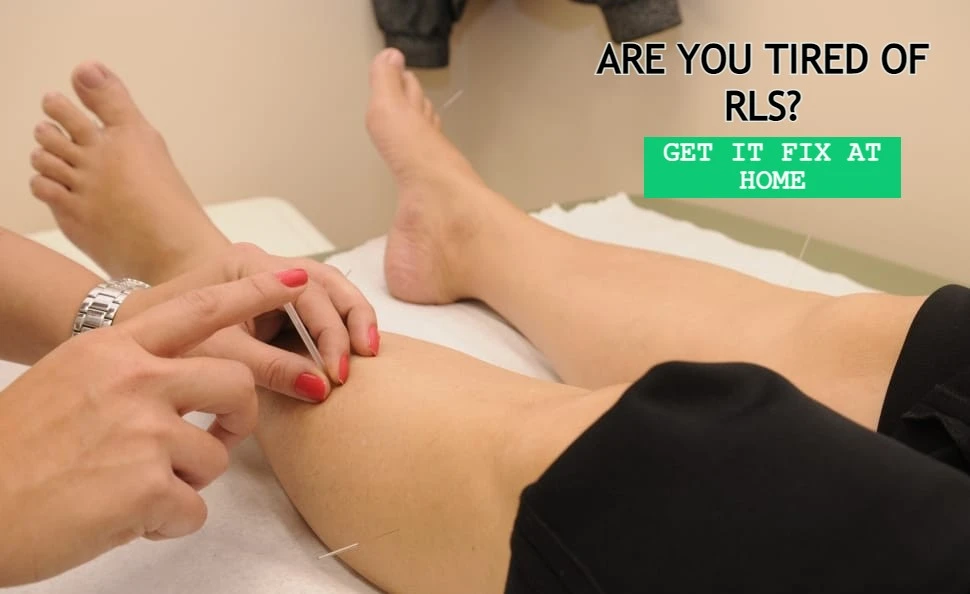
As someone who has struggled with Restless Leg Syndrome (RLS) for years, I understand how frustrating it can be to deal with the constant urge to move your legs. While there is no cure for RLS, there are several vitamins and lifestyle changes that can help alleviate symptoms. In this article, I’ll discuss What Vitamins Help Restless Leg Syndrome and the top 5 vitamins that can help alleviate RLS symptoms, as well as some home remedies and lifestyle changes that can help.
Table of Contents
What is Restless Leg Syndrome (RLS)
Restless Leg Syndrome is a neurological condition that causes an uncontrollable urge to move your legs. Symptoms are typically worse at night and can make it difficult to fall asleep. RLS affects about 10% of the population and can be caused by various factors, including genetics, iron deficiency, and kidney disease. While there is no cure for RLS, several treatments can help alleviate symptoms. In the next section, we will discuss What Vitamins Help Restless Leg Syndrome.
What Can Help Stop Restless Leg Syndrome?
There are several vitamins that can help to alleviate RLS symptoms. These vitamins include Vitamins D, E, Iron, Magnesium, and B12.
Vitamin D for RLS Relief
Vitamin D plays a crucial role in the regulation of calcium and phosphorus in the body. It also helps with the absorption of calcium, which is important for maintaining healthy bones. In addition to its bone-building properties, Vitamin D has also been shown to help alleviate RLS symptoms. Studies have shown that people with RLS are more likely to have a Vitamin D deficiency. If you have RLS, your Vitamin D levels may be worth checking.
Vitamin E for RLS Relief
Vitamin E is a powerful antioxidant that can help to protect cells from damage. It can be great for controlling RLS symptoms. A study published in the Journal of Neural Transmission found that people with RLS who took Vitamin E supplements had fewer symptoms than those who didn’t take supplements. At the same time, more research suggests that Vitamin E may help alleviate RLS symptoms.
Iron for RLS Relief
Iron is essential for producing hemoglobin, which carries oxygen in the blood. Iron deficiency is a common cause of RLS, and studies have shown that iron supplementation can help alleviate symptoms. If you have RLS, You should check your iron levels occasionally. If you are deficient in iron, your doctor may recommend an iron supplement.
Magnesium for RLS Relief
Magnesium is a mineral that is crucial in many bodily functions, including muscle and nerve functions. It has also worked to alleviate RLS symptoms.
Vitamin B12 for RLS Relief
Vitamin B12 is essential for producing red blood cells and properly functioning the nervous system. You should eat those foods that have B12. Eggs, meat, and fish are B12 foods.
Is There a Home Remedy for Restless Legs?

Yes, there are several home remedies that can help to control RLS. These include:
Exercise
Regular exercise can help alleviate RLS symptoms. Exercise helps improve circulation and releases endorphins, which can help reduce pain and discomfort.
Warm baths
Taking a warm bath before bed can help relax your muscles, and you can fall asleep faster.
Massage
Getting a massage can help alleviate RLS symptoms by improving circulation and relaxing your muscles.
Heat and cold therapy
Applying heat or cold to your legs might reduce RLS symptoms. Try a warm compress or a cold pack to see what works best for you.
Lifestyle Changes that can help Reduce RLS Symptoms
In addition to vitamins and home remedies, You should also change your lifestyle. Cause your daily lifestyle mostly matters to controlling RLS. These include:
Avoiding caffeine and alcohol
Caffeine and alcohol can reduce RLS symptoms, so it’s best to avoid them if you have RLS.
Establishing a sleep routine
Establishing a consistent sleep routine can help alleviate RLS symptoms. Even it not only controls RLS but also can increase your productivity. So, Try to go to bed and wake up at the same time every day.
Avoiding screens before bed
The blue light emitted by screens can interfere with sleep and increase RLS symptoms. Avoid tablet, mobile or Laptop screens for at least 1 hour before bed.
FAQs
How to stop restless legs immediately?
Restless legs syndrome (RLS) can be uncomfortable and disrupt your sleep. While there is no cure, you can try some immediate remedies to alleviate the symptoms. Here are a few suggestions:
Massage: Gently massage your legs to help relax the muscles and improve blood circulation.
Stretching: Perform gentle stretches targeting your calf and thigh muscles. Stretching can help relieve tension and reduce the urge to move your legs.
Warm or cold compress: Apply a warm or cold compress to your legs. Experiment with both to see which one works better for you. Warmth can help relax muscles, while cold can help numb the sensations.
Can too much vitamin D cause restless legs?
There is no direct evidence to suggest that too much vitamin D causes restless legs syndrome (RLS). However, excessive vitamin D intake can lead to other health issues, such as hypercalcemia (high calcium levels in the blood), which can cause symptoms like muscle weakness, fatigue, and bone pain.
Which foods cause restless leg syndrome?
There is no definitive list of foods that cause restless leg syndrome (RLS) for everyone, as triggers can vary from person to person. However, some common dietary factors and substances that may worsen RLS symptoms include:
Caffeine: Found in coffee, tea, chocolate, and some soft drinks, caffeine is a stimulant that can exacerbate RLS symptoms for some individuals.
Alcohol: Alcohol consumption, especially in the evening, can worsen RLS symptoms and disrupt sleep.
Sugar and refined carbohydrates: Some people with RLS have reported that consuming high amounts of sugar or refined carbohydrates can trigger or worsen their symptoms.
How much vitamin D should I take for restless leg syndrome?
There is no specific recommended dosage of vitamin D for treating restless leg syndrome (RLS). However, maintaining adequate vitamin D levels is essential for overall health, including bone health and immune function.
For most adults, the Recommended Dietary Allowance (RDA) for vitamin D is:
600 IU (15 mcg) per day for individuals aged 19-70
800 IU (20 mcg) per day for individuals aged 71 and older
It’s important to note that individual needs may vary, and factors such as age, sex, and health status can influence the optimal amount of vitamin D for each person. If you suspect that your RLS symptoms may be related to vitamin D deficiency, consult a healthcare professional. They can assess your vitamin D levels through a blood test and recommend you an appropriate dosage. Do not take high doses of vitamin D without a medical Expert, as overdose can lead to health issues such as hypercalcemia (high calcium levels in the blood).
Conclusion
While there is no cure for Restless Leg Syndrome, there are a few vitamins, home remedies, and lifestyle changes that can help alleviate symptoms. But those things can’t cure your RLS fully. It can just help to reduce or mitigate the symptoms. So If you have RLS, it may be worth trying some of these remedies to see what works best for you. Talk to your doctor before starting new supplements or making any major lifestyle changes.
Now that you know the top 5 vitamins, it’s time to take action. Incorporate these vitamins into your diet, try some of the home remedies, and make some lifestyle changes to see what works best for you.
2 thoughts on “What Vitamins Help Restless Leg Syndrome | 5 Vitamins to Alleviate RLS”